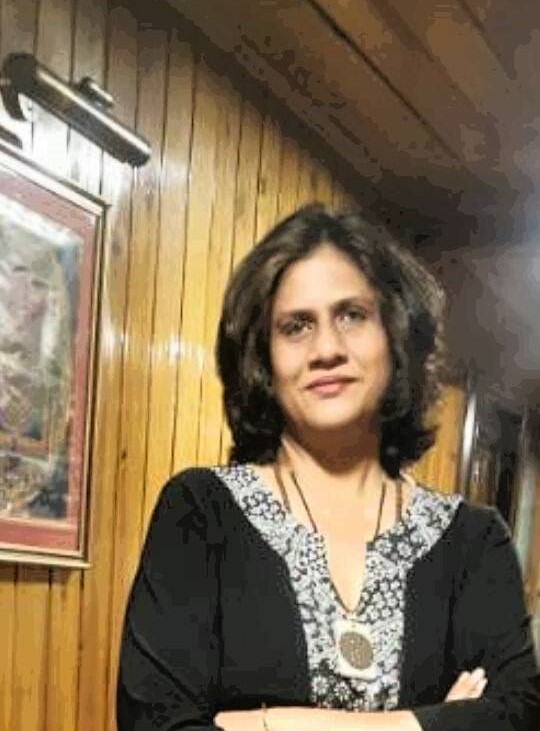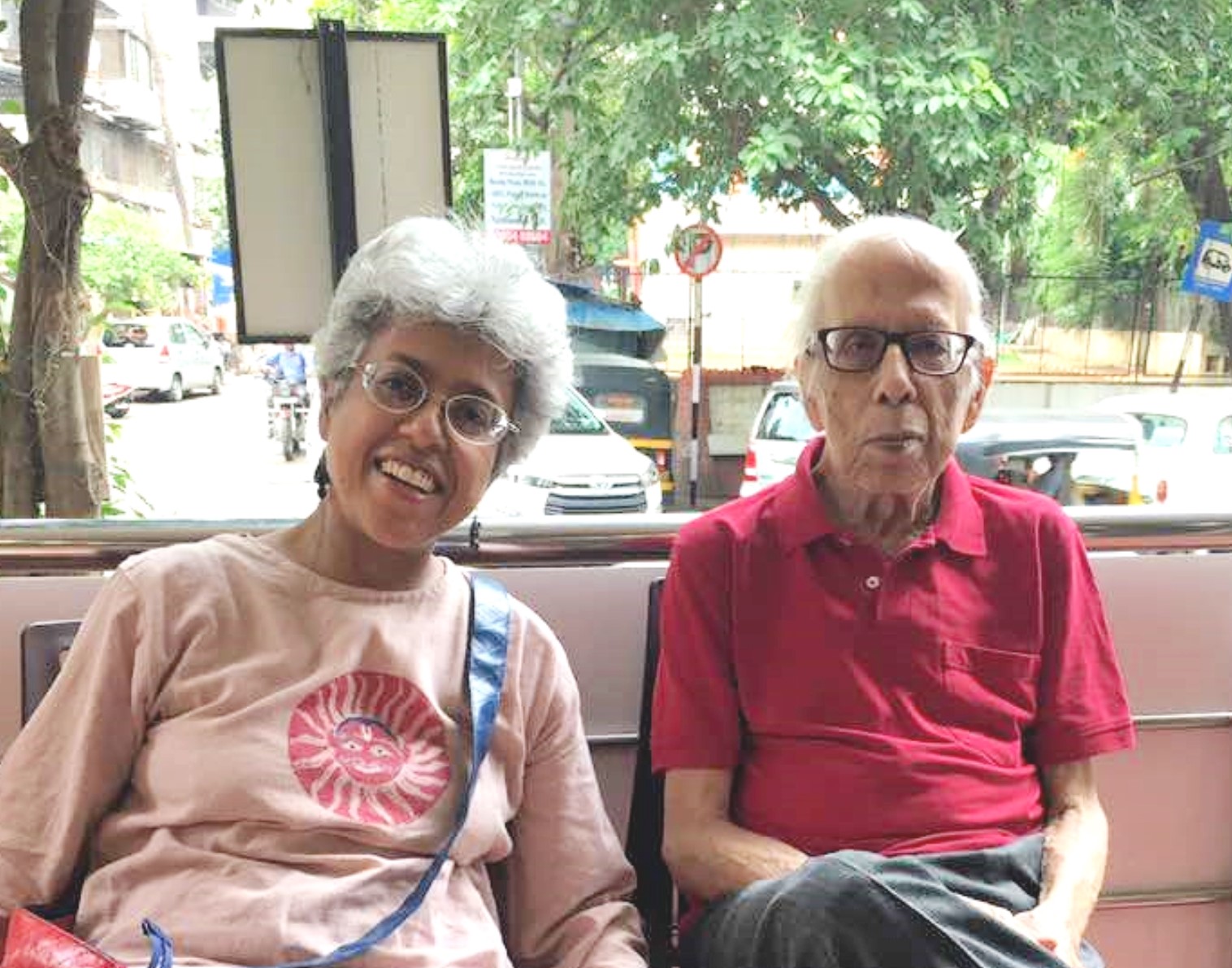Homeward bound on the 12.45 – Freny Manecksha
 Freny Manecksha is an independent journalist from Mumbai. She worked for a number of publications including The Times of India, Mid-Day and Blitz.
Freny Manecksha is an independent journalist from Mumbai. She worked for a number of publications including The Times of India, Mid-Day and Blitz.
Note from the author: This was written when I used to work in The Times of India and would be riding the last train out of CST – the 12.45 AM Karjat local. It appeared in the edition of May 29, 2002.
Now in CoViD19 lockdown#3, I fantasize of travelling in the trains once more. Of becoming part of the city’s great throbbing heart.
MUMBAI:
“Matka cola, malaiwallah, peeyo, peeyo.” First-timers on this train look on bemused whilst the regulars hail the familiar figure. It is Jal Sewa man or paaniwalla who has been going about providing drinking water and bits of philosophy to passengers for years.
No one knows why paaniwalla took it upon himself to improve comfort levels on Central Railways locals. “Yeh mohabbat ki sewa hai, upar malik ki,” he says before moving on to the next rake. Apart from water therapy, he offers cloves and a pain reliever in case you have a headache. In many ways, this quixotic figure represents the idiosyncratic nature of the 12.45 AM Karjat local – the last train out of CST.
Like chameleons, local trains take on their strongly individualistic hue depending on the time of day. During rush hour, red is the colour as the crowds jostle in the clamour. In the night, it’s a much more muted hue. There is an urgency to get on board this Cinderella train but once inside, tensions unravel into a relaxed mateyness. Journalist, factory workers, bar girl and all those who have survived the grind of the third shift hunker down for the long-haul home.
No eyebrows are raised when the brisk click of high heels announces the arrival of a crossdresser, resplendent in kingfisher hues, returning from a Saturday night party. Heave, shift, wiggle – a place is made for him, pleasantries are exchanged. Other revellers under the influence of a different Kingfisher are treated with tolerance so long as they don’t get obnoxious.
In one corner deep conversation is happening. Nothing unusual except the silence. One of the conversationalists cannot hear and his “train friend” uses sign language – soundproof lingo – that has developed in the course of their many shared journeys. Silently and animatedly the day’s news is exchanged.
Suddenly there is music in the air. The shastriya sangeet performer is holding forth in the second-class compartment. Amidst the applause, there is some ribbing. “Arre give us some Michael Jackson!” The local bard breaks off and starts on his own personal story. He is just an old-fashioned welder, no modern music for him. Once he was with others part of a union. Now just a number. His oratory is laced with pathos and humour. If all the world is a stage, then this train is a motley microcosm of a city’s hopes and dreams under rapidly changing forces.
In the ladies’ second-class compartment, the bar girls kick off their uncomfortable footwear and put their feet up. Bhajias and biscuits appear and disappear. Away from voyeuristic eyes, their very ordinariness is evident. They exchange notes on their day – did that lamboo turn out to be a good tipper – and inquire after one another’s children.
Sometimes there is a collective squeal as when they sight a colleague running down the platform trying to catch the train that is already picking up speed. They reassure each other that the motorman has seen her frantic waving. Of course, he will stop. And, in a very special magical way, the train does slow down imperceptibly. The woman hops on. It is a heartening salute from this other-side-of-midnight train to a fellow working professional. The motorman too knows the joys of being homeward bound.


